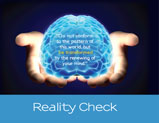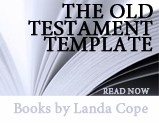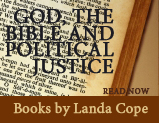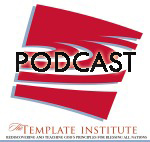Dios, la Justicia Biblia y Políticos: Capítulo 7
Segunda parte: Moisés y la ley prescriptiva
Capítulo 7
La plantilla de las Leyes
Nowhere does the Law weave the values of the Kingdom more delicately and beautifully than when applied to public justice. It is so intricate that it is difficult to know which value thread to begin with in unweaving it. There are innumerable ways to look at and analyze what God is giving us in these passages. For our purposes in this volume on government and civil law I am using a matrix of three categories of crime: perder la vida, dañar y perder corporal de propiedad y cuatro categorías de importancia: pena de muerte, condena perpetua, reparadora y punitiva. Con estas categorías podemos ver todo lo que la ley establece como preceptiva la delincuencia.
Me imagino el estudio de la Escritura como mentalmente destejer los hilos de un tapiz adornado con el fin de entender las partes que componen el todo. Los hilos no se sostienen por sí mismos; only together do they produce the picture. But the threads are the foundational parts of the whole and lay out the grid work that makes the tapestry possible. Al igual que la ingeniería inversa de muebles caja plana, tenemos toda la Escritura aparte de averiguar los elementos que Dios está haciendo hincapié en el fin de entender y que sea más fácil volver a montar de nuevo en nuestra vida.
En Deuteronomio capítulo uno, God initiates a revolutionary idea to curb man’s great appetite for violence and injustice. God makes the human race responsible for governing themselves. They will choose their leaders. They will choose the laws and they will choose consequences for breaking those laws. God will give Israel His thoughts on these subjects but the authority will be theirs to maintain or change their direction. Consenso, representante, abajo hacia arriba el poder político nace.
Recuerde que mientras caminábamos por Génesis, las consecuencias del pecado, separación de Dios, son la muerte ... siempre. We all die physically because sin came into the world. As God continues in Genesis He hammers home the fruit of sin is death. We begin with brother killing brother and continue until the entire human race is so violent, that human life is endangered entirely. The flood and rebooting of human existence through Noah are God’s just and merciful option. But again man’s decent into violence in Abraham’s family is so rapid that in just three generations they have moved to near fratricide of Joseph and genocide of the Shecemites. A 435-year generational sentence is imposed on Israel as a nation in order to create an understanding of the value of human life.
Now God liberates and gives Israel the Law. The prescriptive parts of the Law are very clear. In essence God is saying, si usted supiera lo que yo sé, usted "purgar el mal" de la sociedad, porque estas son las cosas que conduzcan a incrementar la violencia y la pérdida de vidas; sexo, abuso de poder y la codicia.
En otras palabras, en la Ley, Dios nos dice claramente cómo crear seguridad, life sustaining communities and making us responsible to do it. The burden of justice is now on our shoulders. We are free to change the laws God has given and we are free to evaluate the consequences, the fruit of our choices. Are we stopping violent deaths of our fellow citizens or is it increasing? Is our mercy succeeding where God’s has failed us? If not, algo debe estar mal con nuestras opciones.
Ley Civil vs. Derecho Moral
Para la interpretación de las Leyes de Moisés y la historia de Israel en nuestros eventos actuales, debemos entender la diferencia entre dos autoridades que Dios les dio, la autoridad del "derecho civil" y la de "ley moral".
Toda "ley" es moral, en el sentido de que dice, “this is right and this is wrong.” In setting a standard of “acceptable behavior” we must make judgments of what is “good or bad.” But not all “morality” can be made a matter of civil “law.” By giving us responsibility to decide God makes us look at the implications of our choices by the impact on the society we live and raise our children in. Derecho Civil, en representación del pueblo, will never be more moral than the majority of the people it represents. Pero, a more moral people will seek a higher level of civil law. There in lies the tension between the work of the Pastor and the work of the President.
Both civil and moral laws are given authority from God. But they are two different kinds of authority with two different functions. One must have the will of the people behind it in order to have the power to govern. The other must have the will of God behind it to have authority and the blessing of God. One reveals the standards of the people and the other reveals the standards of God. One must seek the support of the people or to change the thinking of the people in order to have authority. The other must ignore the thinking of the people and represent God alone in order to have authority. They are divinely disagreeable in the purposes of God. And we must have both to keep the Kingdom tension of justice in human society. Civil law must be continually committed to keeping the rights of both safeguarded. Este es el dilema y la tensión divina.
La plantilla
The Law seems like a maze in part because of its circular story telling style. We see themes rotating and weaving throughout but they are difficult to grab hold of. Porque soy disléxica es esencial para que pida información a retenerlo. Así que he usado el color que me ayude de nuevo en el estudio de la ley como lo hice en el estudio de los dominios en el volumen de introducción. I divided out the prescriptive parts of the Laws of Moses. Those parts of the Law that tell us to “do this but do not do this,"Como el 10 mandamientos. Estas porciones "prescriptivas" se encuentran en Éxodo, Levítico, Números y Deuteronomio. Y comenzando por Deuteronomio ya que es considerado por los estudiosos judíos y cristianos como el "manual básico,"He asignado a cada tema en la ley prescriptiva un color cuando apareció en mi lectura y desde entonces se utiliza el mismo color de cada vez que el tema volvió a aparecer. Una vez que había utilizado Deuteronomio establecer el patrón que entonces era capaz de ver lo que Dios hizo hincapié o se añade a estos temas en los otros tres libros de la Ley.
Cinco Valores
Para mi sorpresa,, Me di cuenta de que toda la ley prescriptiva basa en cinco valores fundamentales que se repiten y apoyados en diferentes circunstancias y dentro de las distintas autoridades. Estos son los cinco valores:
1. La vida es sagrada.
2. The material world is real, bueno y esencial para toda la vida.
3. Las palabras tienen poder y que son responsables de ellos.
4. Todo lo que necesita y se puede canjear.
5. Any thinking that takes us away from God’s truths and values will begin to curse (no bendecirá) nosotros. (Idolatría)
Por supuesto, cada uno de estos valores apoya la primera: "La vida es sagrada." Y así todos ellos podría ser declarado como "La vida es sagrada, por lo tanto ... "
Cinco Supuestos
En el capítulo cinco nos establecimos cinco supuestos que el Reino de Dios se basa en. Estas son las realidades Escritura presupone:
1. God is and is who He says He is.
2. God is the Creator of the material universe, visto y no visto, y es bueno.
3. Human individuals, masculino y femenino, son creados a la imagen de Dios y Su propósito central de toda la creación.
4. Everything that God has created is damaged by the fall of man and sin.
5. Everything that is damaged is redeemable through the blood of Christ.
Creo que la mayoría puede ver las similitudes entre los cinco valores de la Ley y los cinco supuestos que toda la Escritura se basa en.
Las instituciones de la Autoridad
En el cuarto capítulo analizamos cuatro instituciones de autoridad creados por Dios:
1. Individual
2. Familia
3. Gobierno
4. Iglesia[1]
El individuo soberano, created in the image of God is the foundational building block of the Kingdom. The sovereign family of husband, esposa e hijos, is crucial to the development of healthy and mature individuals. The sovereign government, autorizado por las personas que están siendo gobernados es responsable de definir y hacer cumplir la autoridad delegada de Dios, rights and responsibilities. And finally the sovereign Church is responsible to rightly represent God and His standards.
Cada una de estas "instituciones" se da un tipo de autoridad, jurisdicción, fronteras, derechos, libertades y responsabilidades. These lay the foundation for and the value base of civil law. These values do not perfect human beings or societies but, al nivel que se establecen y refuerzan, se va a crear y sostener una sociedad más bendecido. These values and the institutions when applied reveal God to the human community. They work with the Cross to reveal Christ the King but they do not substitute for forgiveness and salvation through Jesus. Revelan el Reino que viene, pero no pueden perfeccionar ese Reino en la tierra. Establecer y utilizar correctamente estos valores producen una mejor calidad de vida en todos los ámbitos de la vida, pero no lo harán por fin el hombre perfecto o la creación.
Estamos empezando a identificar los elementos básicos del Reino de Dios y el pensamiento bíblico. Se superponen, tejido y se repiten una y otra vez en toda la Escritura. Todavía tenemos que añadir los temas de los profetas y los escritores del Nuevo Testamento, but the grid is taking shape. We have five assumptions on which God builds all His thinking. Five values that are essential to uphold if these assumptions are true and four institutional authorities that God gives us in order to preserve and perpetuate these truths and values for the purpose of blessing our lives and our communities.
Tensión
Estas realidades bíblicas establecer una "tensión" de la libertad, los derechos y responsabilidades que se deben mantener con el fin de mantener el "orden justo" o "justicia" y construir individuos sanos, las familias y las comunidades. They cannot be “balanced.” They must be mutually maintained.
Picture a tight rope. In order to be traversed it must be rigid. If there is any give at all the consequences can be catastrophic for the walker. This is far more consequential than a set of scales that are just a few grams off. The acrobatic artist cannot survive a slack rope. He can only perform when there is perfect tension on the rope.
In political justice if we error in one direction or the other we distort God’s order in His Kingdom. Dios ha hecho el individuo libre y soberana. Pero, ya que es cierto de cada individuo, there are limits to freedom of any single individual. In order for every individual to be free there have to be limits to all of our freedoms. Who has the right and responsibility to create and sustain those boundaries? God has created the family as the authority for and over children. The authority of parents is loving their children. If they are trying to murder their children they are in violation of the sacredness and rights of the individual life. I have the freedom to believe what I like. Do I have the freedom to practice that freedom anywhere anytime any place? If I believe in human sacrifice for my blessing do I have a right to do it? Or is this an abuse of the sacrifice’s rights? Do we have rights as communities? How do we secure minorities rights, los derechos de los padres y los niños, y la libertad de la fe sin destruir los derechos de la comunidad?
En todas las cuestiones jurídicas que estamos pidiendo a estas preguntas:
1. To whom has God given what rights and responsibilities?
2. What are the limits of those rights?
3. How are violations of those rights to be dealt with?
Every system of governance has answers to these questions or is working on them. But are they Biblical answers? We can know what God says about each question and we can know, en un momento dado en que se bendicen nuestras naciones, las leyes y el sistema de gobierno o en peligro, this is the Biblical Template. But we must be willing to exchange the thinking of the world even when it has been called “Christian” and replace it with God’s thinking, aun cuando eso se llama "mundo".
Trabajo de la plantilla
Si le preguntamos a la Biblia la cuestión, "¿Qué significa amar a mi prójimo como a mirada?"Podríamos mirar a los Diez Mandamientos. Si nos preguntamos, "¿Por qué son estos Diez Mandamientos importante y cómo se aplican los?"Nos fijamos en el conjunto de la Ley de los detalles. Si nos preguntamos, "¿Qué sería de una sociedad si aplicamos o alejamos de estos valores?"Nos fijamos en los Profetas. Y si nos preguntamos, "¿Cómo puede una comunidad comienzan a alejarse del pensamiento de Dios?"Nos fijamos en la historia de Israel en la Ley y en el resto del Antiguo Testamento.
Para nuestros propósitos en este libro, nos fijamos en la ley prescriptiva e históricos que se relacionan con el derecho civil y la justicia, tratando de sacar lo que se hizo hincapié en. Sin embargo, para el desarrollo de nuestro pensamiento debemos verlos como integrados y tejidos. Así, en efecto, que "diseccionar" para analizar y volver a ponerlos juntos para entender y aplicar.
Por ejemplo, la ley prescriptiva dice que el adulterio es ilegal y punible con la muerte. Pero históricamente, esto no se aplica cuando David cometió adulterio con Betsabé. ¿Por qué? ¿Acaso no se aplican la ley? O, era allí más a "la Ley" que sólo las prohibiciones? ¿El derecho del pueblo a ratificar y cambiar parte del derecho civil de lo que los valores de "la Ley" asegurados? Cuando los fariseos llevar a Jesús a una mujer sorprendida en adulterio y le animan a piedra a su acuerdo con la Ley de Moisés. Jesús les alienta a la piedra con ella si su justicia les permitirá presentarse como juez. Bajo la ley romana el adulterio no era ilegal y si habían apedreado su hubiesen sido declarados culpables de homicidio. Tal vez este era su plan para Jesús. He then dismisses the women with the exhortation to “sin no more.” Adultery is still immoral.
[1] It is very tempting to make this list five as well by adding “God” from who all authority and power comes. The author is resisting the temptation to numerical perfection.







